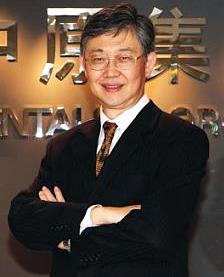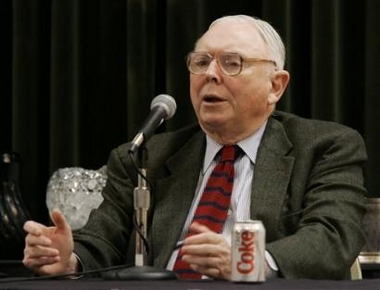
Translated by Andrew Vanburen from 偷师股神拍档: 从赔率悟投资之道
LAST MONTH I was invited along with Centaline Chairman Shi Wing-ching to jointly chair conferences in both Hong Kong and Taiwan.
Mr. Shi was asked to analyze the local property market and discuss how it has benefited from the relatively low interest rates to date, the ongoing global economic recovery, continued strong demand from the PRC as well as the relative level of volatility in the sector.
The hundreds of attendees were captivated by his observations on such a critical and lucrative (for many) sector as real estate.
Mr. Shi also said one of his colleagues was landing between 8-10 deals a day in the high-flying property sector.
Looking back, I can say that the last time I remember such hoopla in the real estate industry was in 2007. During a shareholder meeting at the time, it seemed like everyone was chasing their pot of gold at the end of the rainbow, and market confidence was off the charts. Nearly all the news was positive and investors were acting on it accordingly.
At the time, people often said they preferred to put their money into properties rather than stocks because of higher and faster returns. But then when the housing market began to taper off, the opposite became true.
 Charlie Munger, Warren Buffett’s investment partner.
Charlie Munger, Warren Buffett’s investment partner. Photo: Internet
Then the refrain echoing throughout the message boards, blogs and brokerages became: “Put your money in stocks, because it’s far smarter and safer than pouring it into property speculation”... and the rest is history.
Garden variety investors typically encounter an opportunity, decide whether to participate, focus almost exclusively on the fundamental merits of the project but almost always overlook the “price” element. The equivalent to a day at the track is akin to placing a bet on a pony without assessing the odds.
It was recently learned that market wizard Charlie Munger, Warren Buffett’s right hand man, employed a related investment philosophy, and I will share it with you.
“A lighter, sleeker, well-trained horse with a stellar record is very likely to outrun a heavy, out-of-shape pony with a poor track record. Even a novice can understand this. But if the damn odds are like this, the inferior horse’s odds of winning are 100:1, and the better horse may be around 3:2 odds of finishing first.
"So by using simple mathematics, it is anything but simple to comprehend which horse is a better vehicle for making some money. The same can be said for share prices and market volatility... so it’s also difficult to outsmart the stock market most of the time.”
To Munger, the so-called “odds” are the price of doing business.
"If you stop to think about it, the racetrack and the odds you face when you place a bet are, in fact, a market. If more people play the ponies, the more popular picks will see their odds go up accordingly. Just like a stock, the more people buy its shares, the higher its valuation climbs. This is the nature of share prices – the more they get bought, the hotter they get. Some call this “overheating.”
So before placing a bet – or buying a share – buyers must first take into account both the underlying fundamentals of the potential investment as well as the value of the target at the current price. If the price exceeds the value, then it should be avoided.
At the racetrack, when people approach the counter single file and place their bets, the odds increase steadily for the more popular choices and reflect a more long-term position, if you will. Alex Wong, Director of Asset Mgmt, Ample CapitalHowever, if everyone places their wager within a short period of time, the odds quickly go through the roof for the most sought-after fillies, just as when there is a surge in orders for a particular stock.
Alex Wong, Director of Asset Mgmt, Ample CapitalHowever, if everyone places their wager within a short period of time, the odds quickly go through the roof for the most sought-after fillies, just as when there is a surge in orders for a particular stock.
Munger observes that the successful long-term investor fully understands his stock’s (or mare’s) core capabilities and potential, and he or she also very likely has a fundamental understanding of both mathematical principles as well as having a good head on his or her shoulders. And his disciples will do well to remember that a horse with a 50% chance of winning any race will likely have odds of 3:1 given it.
This, of course, makes for a great deal of difficulty.
Munger said: "Some 98% of the time that we are 'watching' the market, we are in fact just waiting for something to happen and have no idea which direction things are headed. Only when we deeply ponder the relative price and value of a particular counter at any given time can we begin to see advantages, and that is when opportunities suddenly land in our lap."
Returning to the property sector, just as a particular horse will see its odds squeezed tighter as the bets roll in, so will a property project rise in value as the number of investors or committed tenants increases.
And for many, waiting too long is the biggest sin.
A high valuation does not necessarily lead to a no-win situation but, of course, any returns will be less impressive than those enjoyed by investors who bought in on the ground floor... or who were first in line to bet on the winning horse.
See also:
TEXHONG TEXTILE: High Returns, Low PE
ISAAC CHIN: $5 M In REITS, $2 M In Properties....And Mor
e







